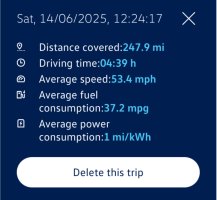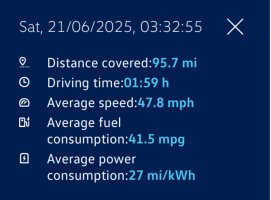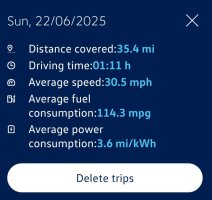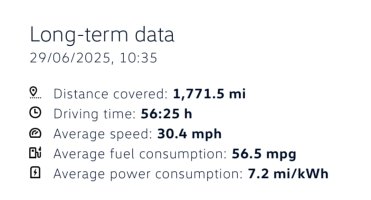S
stationmaster
- Messages
- 598
What is the overall average range of the T7 e hybrid?
What is the realistic range using electric only?
Does the overall performance (therefore overall range) drop substantially if the battery is depleted and you complete a journey using just the petrol engine?
Thanks.
What is the realistic range using electric only?
Does the overall performance (therefore overall range) drop substantially if the battery is depleted and you complete a journey using just the petrol engine?
Thanks.


















